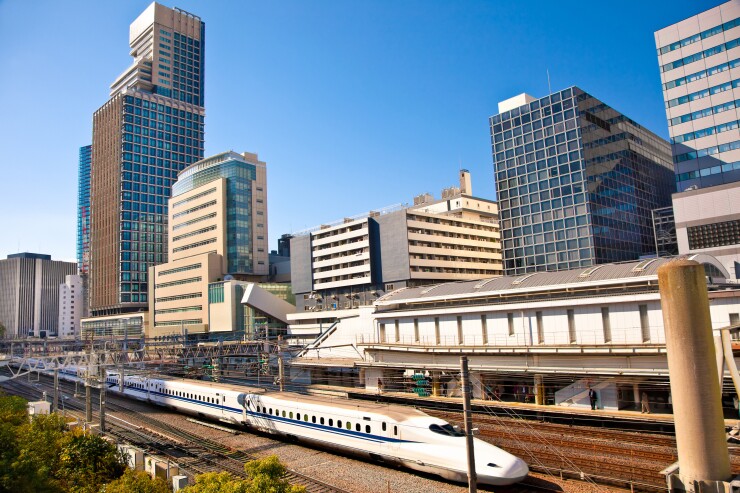DALLAS — Texas Republican lawmakers from mostly rural districts have filed almost two dozen bills in the state Legislature seeking to block a proposed privately funded high-speed rail line between Dallas and Houston.
The 23 measures introduced on Tuesday, which include nine duplicate bills in both the state House and Senate, would make it harder for project sponsor Texas Central Partners to obtain rights-of-way through eminent domain for the route and require the Texas Department of Transportation to assess the long-range feasibility of the 240-mile bullet train system.
Many of the new bills are similar to earlier attempts that failed to advance in the 2015 Legislature, but sponsors of the revived measures said they began the legislative process earlier to ensure passage before the current session ends May 29.
Texas Central Partners said it will not need state or federal grants or subsidies to build and operate the $12 billion HSR line but may seek low-interest federal loans and an allocation of tax-exempt private activity bonds to help finance the project.

Texas Central earlier this month dropped eminent domain lawsuits against 17 landowners along the route after reaching option agreements with more than 3,000 landowners covering 30% of the land parcels needed for the project's right-of-way in the 10 mostly rural counties along the route.
The trains, with technology developed by Japan Central Railway, would make the 240-mile trip between the two cities in 90 minutes with only one stop along the way.
The anti-rail measures would take away a transportation option that would be beneficial to the state and its economy, said Holly Reed, Texas Central's managing director of external affairs.
"Contrary to the national focus on infrastructure projects that stand to create tens of thousands of jobs and benefit millions of people, it is ironic that the proposed legislation calls for more government regulation in trying to block a free market-led project that will create jobs and generate economic development," Reed said.
A bill filed by Sen. Charles Perry, a member of the state Senate Transportation Committee, would require TxDOT to prepare feasibility studies for high-speed rail proposals at the request of any lawmaker.
"Since the proposed high-speed rail project stretches across Texas, we need to make sure all of the necessary data and research has been completed to ensure private property rights are being protected," Perry said.
Several of the legislative opponents of the train proposal cited an estimate from the Reason Foundation that said the Texas Central system could cost taxpayers up to $21.5 billion over 40 years if ridership falls below current estimates.
"This legislation will ensure that the property rights of our constituents are respected and state taxpayers aren't asked to bail out this project when costs inevitably exceed stated projections and ridership fails to meet expectations," said state Sen. Charles Schwertner of Georgetown.
Texas taxpayers should not be "left holding the bag" if the project fails, said Rep. Leighton Schubert of Caldwell.
"This group of foreign investors is threatening to seize family farms, physically divide the state of Texas, and have a gravely detrimental impact on the citizens I represent," he said. "At a minimum, the people of Texas deserve reasonable reassurances that their private property rights will be respected."
The flurry of anti-rail bills in the Legislature is not surprising but it is disappointing, said Chris Lippincott of the pro-rail group Texas Rail Advocates.
"Our Legislature should be in the business of expanding transportation options and embracing innovation," he said. "We hope legislators don't fall victim to a vocal minority who would have our state bury its head in the sand by ignoring our growing population and clogged roads."





